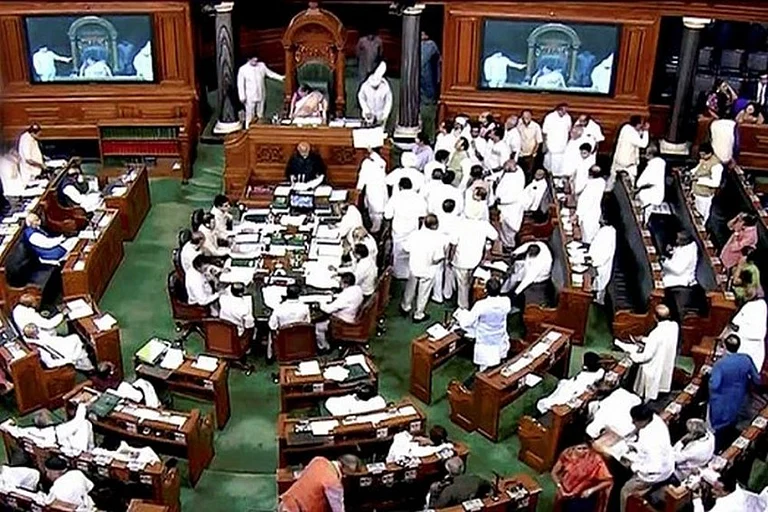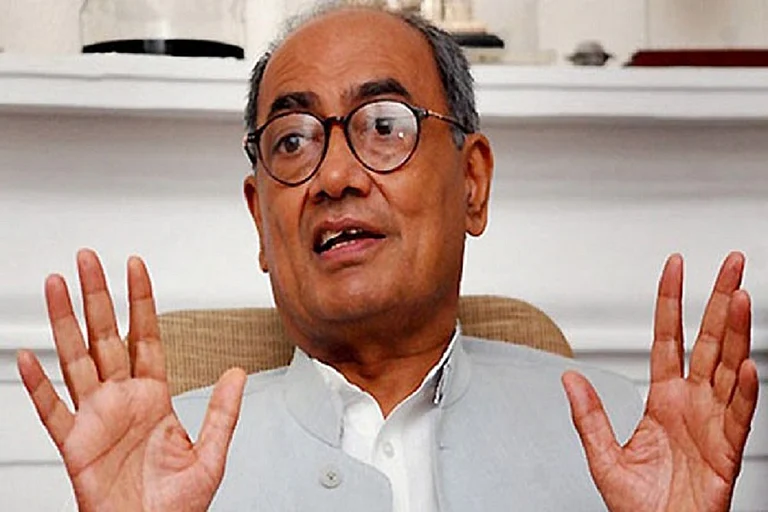In August 2023 when the opposition parties stalled the monsoon session of the Parliament seeking the Prime Minister’s comments on Manipur and pressed for a no-confidence motion, Modi said, the opposition is “trying to pass off old vehicle as electric one just by applying new paint.”
That day the opposition walked out without pursuing the motion. But neither could they respond to it, nor could they create an image that could work beyond optics. How are they different from the old coalitions that couldn’t survive the test of time due to internal power-tussle? As the elections come knocking at the door and the ruling party is about to declare its first list of candidates, the INDIA bloc members are yet to clinch the biggest deal - seat-sharing.
Rough estimates and reports pouring in from across the country indicate that the INDIA bloc members are going to fight against each other in at least 82 Lok Sabha seats -West Bengal (42), Kerala (20), Punjab (13) and Delhi (7)- if not more.
In West Bengal, the fight between TMC and Congress has been going on for years. In 2011, though they fought together with an objective to dethrone the 34 years left front rule, the political situation changed soon. The Congress joined hands with their old friend CPI (M) in the 2021 assembly elections. Though the alliance neither benefited from the grand old party, nor the left, their unity against the allegedly corrupted rule of TMC was strengthened with time. Both the parties call TMC ‘BJP’s B-team’ citing their ‘subtle understanding’.
The recent incident of ED officials being attacked in South Bengal during their raid on a senior TMC leader further worsened the situation. Adhir Ranjan Chowdhury, senior Congress leader and the leader of the party in Lok Sabha said that the Mamata Banerjee government is protecting ‘criminals’.
Meanwhile, senior TMC leaders have made it clear that they would not give more than two seats to Congress. The party even denied meeting the five-member National Alliance Committee (NAC) that the Congress formed to discuss seat-sharing. TMC has made it clear that they can give another seat to the party depending on the senior leaders’ discussion with Banerjee.
Notably, the West Bengal CM didn’t attend the latest meeting of INDIA bloc members where Congress President Mallikarjun Kharge had been chosen as the chairperson of the coalition. The left parties, on the other hand, have clarified that they would not ally with TMC in West Bengal. One of the left party leaders from the state says, “Wait for some time and you can see that TMC would spoil the prospects of the alliance in the coming days to help BJP.” In the 2019 Lok Sabha elections, TMC won 22 seats, whereas Congress got only two. The left parties couldn’t manage to get a single seat. But the BJP increased its tally from two to 18.
The fate of the INDIA bloc in Delhi and Punjab is seemingly not very different. The relationship between Congress and AAP has never been good since the latter came into existence. AAP came to power in Delhi riding on its anti-Congress and anti-corruption salvo. To expect them to ally with Congress is itself an illusion, says an analyst. Not only that, AAP has carved out its vote bank from Congress itself.
While the grand old party managed to keep its hold on Punjab even during the saffron wave, in the last assembly elections, they were almost decimated. Apart from that, the Congress councillors in the AAP-led Delhi Municipality Council are not happy at all with the treatment meted out to them by the ruling party. In the 2019 Lok Sabha elections, a possibility of an alliance with the Congress was built up but soon fell on its face as there was no agreement on seat-sharing.
In this backdrop, the latest understanding between Congress and AAP during the formation of the INDIA bloc was developed on the ground that the grand old party would support AAP when the Modi government would table the bill related to the control of services in Delhi. Both parties though stood together during the parliamentary session, the trickling effects of such camaraderie couldn’t shape the seat-sharing talks.
As per media reports, AAP is likely to leave three seats for Congress in Delhi whereas in Punjab, there is hardly any chance to reach any resolution. The recent statement of Punjab CM Bhagwant Mann that AAP would win 13 out of 13 seats in the state without the support of the Congress, further worsens the situation. The regional Congress leaders have also said that the high command has asked them to be prepared for all of the seats.
Even in such conditions, the only ray of hope is the Chandigarh mayoral election where Congress has agreed to leave the post of mayor to AAP. In 2019, Congress won eight seats in Punjab while AAP got one; BJP and Akali Dal got two seats each. However, in Delhi, despite an AAP government, BJP swept away all the seven Lok Sabha seats.
In Kerala, it is more or less evident that the left and the Congress would not form an alliance. Sitaram Yechuri, the general secretary of CPI (M) earlier told Outlook that state politics is different than the national one and hence, the political understanding.
The case of Uttar Pradesh is not clear. The relationship between SP and Congress turned sour in the run-up to the Madhya Pradesh assembly elections when Congress, due to its confidence to form a government, denied three seats to the party. Senior Congress leader and former CM Kamal Nath’s remark that he didn’t know any ‘Akhilesh-Vakilesh’ also spoilt their relationship. A few political analysts told Outlook that the failure to address the SP vote bank in the Gwalior region considerably affected the outcome.
The ice between these two parties though seemingly broke in a few weeks, SP’s conviction to play the ‘big brother’ in the UP is clear. Media reports suggest that SP would at least like to fight in 60 seats leaving the rest for RLD and Congress. The grand old party, on the other hand, is vying for 20-21 seats, considering their results in 2009 when they unexpectedly did well in the largest state in decades. Nonetheless, Salman Khurshid, a member of the NAC, after their recent meetings with the SP leaders, expressed hope and said, “I hope that the alliance happens before the (Bharat Jodo Nyay) Yatra reaches Uttar Pradesh.”
The fate of seat sharing in Gujarat is also dependent on the seats AAP leaves for Congress in Delhi. In Bihar, the JD(U) and RJD both have reportedly claimed 16 seats, leaving very few for Congress. This may also stir the hornet’s nest leading to a crisis in the Mahagathbandhan.
The Congress party though has said that they would focus on 255 Lok Sabha seats only- the lowest since the first election of 1952- it is not clear which seats they are going to leave for the other parties. Most of the regional parties believe that the Congress needs to cede space to the others if they really want to defeat the BJP. Will Congress be able to build up an alliance? Or will it be another case of Imperfect Solidarity?









.png?auto=format%2Ccompress&fit=max&format=webp&w=768&dpr=1.0)

















